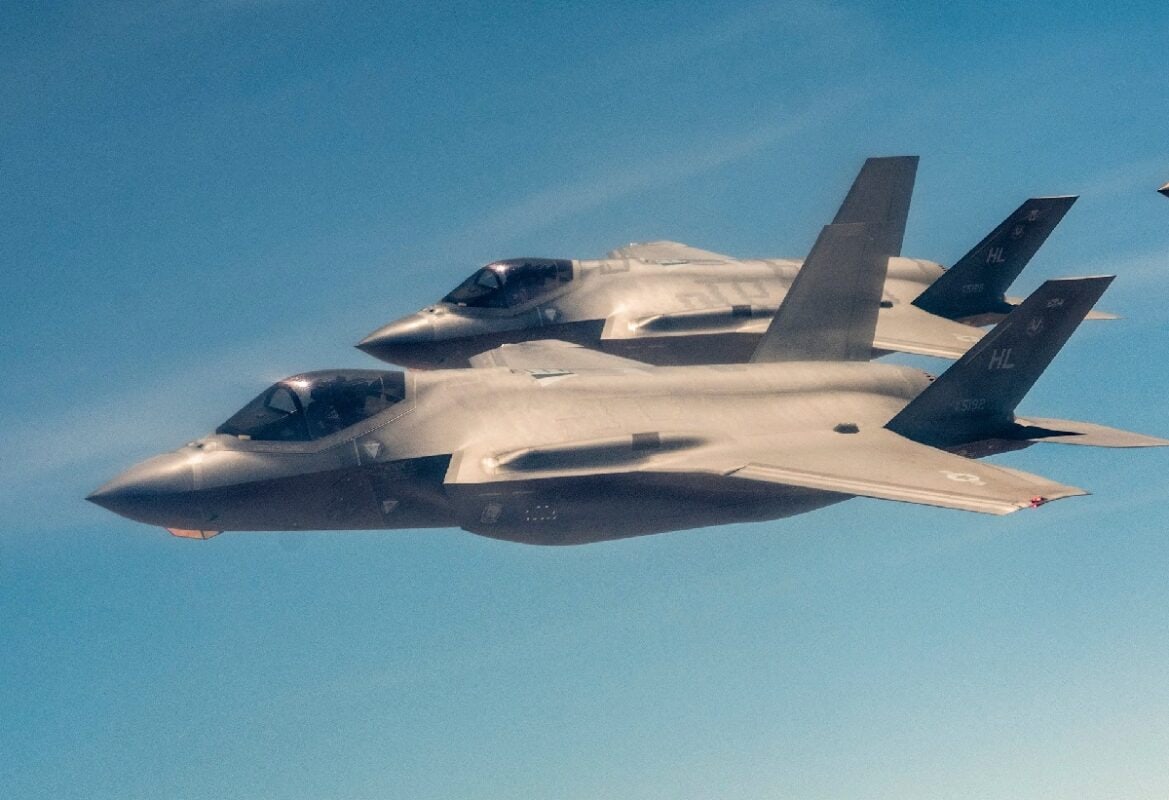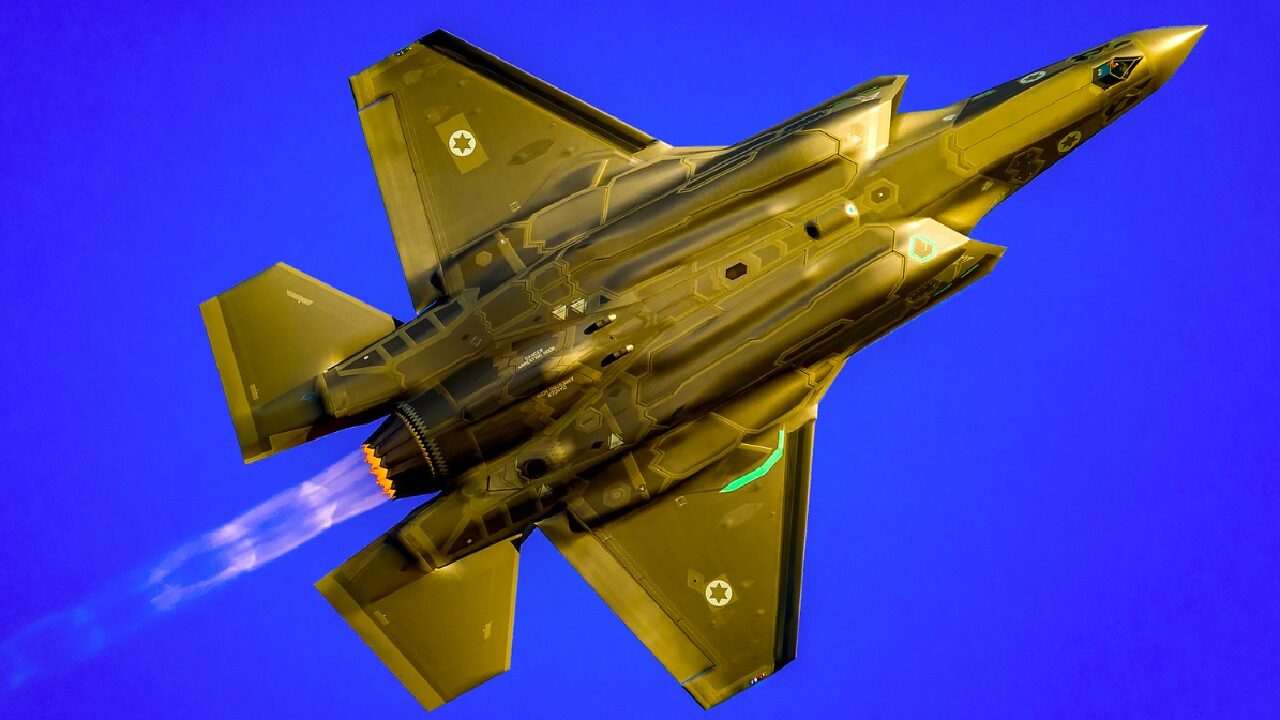On the morning of June 5, 1967, Israeli pilots struck Egyptian air bases. By the end of the day, they had destroyed almost all of Egypt’s air force, about half of Syria’s, and all of Jordan’s. This pre-emptive attack came after years of rising tensions between Israel and its Arab neighbors, who wished nothing less than Israel’s destruction. Gamal Abdel Nasser, president of Egypt and the face of Arab resistance against Israel, frequently promised to destroy Israel in the name of Palestinian liberation. In 1965, after many anti-Israel declarations, he explicitly stated, “We aim at the destruction of the state of Israel.”

F-35I Adir. Image Credit: IDF.
Egypt was responsible for several of Israel’s woes. The Palestinian Liberation Organization was created by the Arab League in 1963 as a terrorist resistance group to attack Israel from Arab-controlled territories. It was financed and supported by Cairo and Damascus. Nasser also ordered UN emergency forces housed in the Sinai to leave, putting Israeli security at risk and giving the impression an invasion was imminent.
Furthermore, even after the 1956 Sinai Campaign proving Israel’s sensitivity regarding the Straits of Tiran – in 1955, Ben Gurion had declared that blocking the strait would be considered a casus belli – Nasser threatened freedom of navigation once more by mobilizing troops into the Sinai. Lastly, Israeli intelligence gathered evidence starting in 1965 of an impending attack by an Arab coalition. King Hassan II of Morocco taped a meeting of Arab leaders and officers discussing a new Arab-Israeli war, which he promptly handed over to Israeli intelligence, confirming military officials’ suspicions.
Arab states, but especially Egypt, constantly threatened Israeli security. But thanks to Israel’s intelligence apparatus and sense of insecurity, the country prepared itself for conflict and carried out pre-emptive attacks following what is now known as the Begin Doctrine developed after 1956. This allowed the state to win a war against enemies that surrounded it, had more resources available, and wished to destroy it.
It has been 55 years since that fateful war ensured Israel protection from its enemies and established it as an important geopolitical factor in the region. Sadly, though, the threats to Israel haven’t ceased. They have only shifted, with Iran replacing Nasser and Egypt as Israel’s greatest rival.
Iran’s enmity toward Israel is based primarily on religious fundamentalism and geopolitics. Opposition to the Iranian Islamic system is seen as morally repugnant, and as geopolitically untenable for this revisionist state. The destruction of Israel is the goal, and many means are used to achieve it. In the face of this Iranian threat, former Israeli Prime Minister Naftali Bennet hinted at the possibility of striking Iran to stop its drive to achieve a nuclear weapon.
Analyzing the conditions both in 1967 and the present, it becomes clear that a pre-emptive Israeli strike is possible. The conditions are strikingly similar. Like Egypt then, Iran is a state sponsor of terrorism against Israel, financing and supporting groups such as Hamas, PIJ, and Hezbollah. Iran might not have the ability to blockade the Straits of Tiran, but its presence in the Gulf of Aden could eventually impact Israel. Finally, there are numerous Israeli intelligence officers in Iran conducting operations such as information-gathering and planned assassinations to prevent a nuclear Iran. These assets could inform the government when development of a capable nuclear missile is nearing completion.
The 1967 war is not the only precedent for this kind of move by Israel. In 1981 and 2007, Israel struck Iraq and Syria, respectively, citing their suspected nuclear programs. Helping matters, the geopolitical situation in the Middle East at present is not nearly as risky as it was. Indeed, the threat of a nuclear Iran has forced unfriendly Arab regimes to recognize their common interests.
Still, Israel needs to be realistic about the support it would receive from Arabs across the region once it has attacked Iran. With few exceptions, most Arab populations still consider Israel to be a bigger threat than Iran to their countries. Thus, domestic pressure may force states to act in a manner not compatible with their national interests, or with regional stability. Furthermore, a strike in Iran could strengthen the regime, currently mired in instability and deeply unpopular, strengthening its rule at home as happened in the 1981 Iran-Iraq war.
The potential immediate costs to Israel are quite low. It would achieve the initial goal of destroying Iran’s nuclear capabilities, and popular backlash against Israel would not materialize right away. But without a realistic approach to its foreign policy, whereby alliances are crafted to confront Iran on a prolonged basis, Israel would soon find itself in a tense geopolitical position.
Iran would probably retaliate by instructing its terrorist proxies in Lebanon, Yemen, and Palestinian-controlled territories to attack Israel and any other collaborator state. Furthermore, the use of conventional military strategy cannot be discarded. Iran could use drones and medium-range missiles to attack critical infrastructure across the Middle East, as they have threatened to do in the past.

AL DHAFRA AIR BASE, United Arab Emirates – Israeli Air Force F-35I Lightning II “Aldir” and U.S. Air Force 421st Fighter Squadron F-35A Lightning II fly together after refueling from a 908th Expeditionary Refueling Squadron KC-10 Extender during exercise “Enduring Lightning II” over Israel Aug. 2, 2020. While forging a resolute partnership, the allies train to maintain a ready posture to deter against regional aggressors. (U.S. Air Force photo by Master Sgt. Patrick OReilly)
Given that a pre-emptive Israeli strike to prevent a nuclear Iran is probable, Israel and states with shared interests should prepare for strong Iranian retaliation. The world must also brace itself for an eruption of conflict in the Middle East shatterbelt – a conflict that will involve many states and will draw in the great powers.
Salomón Soltau is currently a student of International Relations at the Universidad del Rosario in Bogotá, Colombia. He is a researcher at the Defense, Security, Conflict and Peace research group (@descop_ur) in the Security and Defense Privatization line, where sub-state actors and private security and defense development is investigated. You can find him on Twitter (@s_soltau12) and on LinkedIn, any concerns about the piece can be directed to [email protected].

